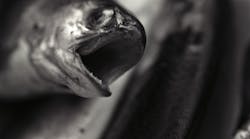While working in tanks and pits, U.S. Fish and Wildlife Service employees at Pendills Creek National Fish Hatchery in Brimley, Mich., faced atmospheric, water, amputation and asbestos hazards.
OSHA found that the Fish and Wildlife Service, an agency of the U.S. Department of the Interior, didn’t follow federal guidelines for working in confined spaces at the hatchery.
"Tanks and pits can be dangerous or fatal for workers lacking proper training and protection," said Larry Johnson, director of OSHA's Lansing Area Office.
"Like private employers, federal agencies must correct safety and health deficiencies immediately. Failing to do so is inexcusable."
OSHA issued notices of unsafe and unhealthful working conditions to the federal agency on Oct. 6 for 11 serious, one repeated and one other-than-serious violation.
The private-sector penalty for the violations would be $70,500; however, OSHA doesn’t assess penalties for federal agencies.
OSHA found the Fish and Wildlife Service didn’t evaluate tanks and pits for confined space hazards; didn’t post warning signs and prevent unauthorized entry into these spaces; didn’t provide asbestos-awareness training to employees in areas likely to have asbestos-containing material; didn’t teach workers about workplace chemicals.
The agency also exposed workers to machinery operating parts because it didn’t install machine guards on a mechanical power transmission; didn’t establish an energy control program; and didn’t train workers on machine safety procedures.
The Fish and Wildlife Service also used compressed air at a force greater than 30 pounds per square inch while cleaning and exposing workers to struck-by hazards, a hazard the agency also was cited for in 2013 at a Kodiak, Alaska, site.
The April 2015 inspection was the Pendills Creek National Fish Hatchery's first OSHA inspection. The hatchery has 13 employees and produces lake trout for stocking the Great Lakes.
